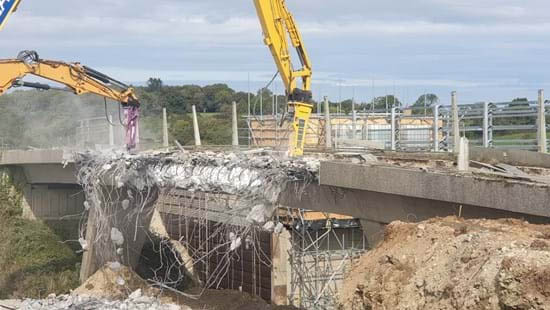National Highways has missed nearly one in four target dates for enhancements on its network during the current roads period and risks missing key performance indicators (KPIs), including its 2025 casualty target.
In its annual assessment of National Highways’ performance 2023-24, the Office of Rail and Road (ORR) will say that the benefits to road users from the 2020-2025 road investment strategy (RIS 2), ‘risk not being delivered in full’.
Of the enhancements that National Highways was tasked with achieving in RIS 2, it has successfully delivered 37 but target dates have been missed for 11.
The ORR said that this reflects a combination of factors, including those outside of National Highways' control such as significant uncertainty due to legal challenges, high inflation and delays in government decisions.
The primary problems within National Highways’ control for delivery were the company’s supply chain management and poor asset data.
Although the annual assessment has yet to be laid before Parliament - it's expected before the summer recess - the ORR revealed some of its key points.
The assessment will say the government-owned company has met a number of its targets, including those on pavement condition, incident clearance and the impact of roadworks on road users.
However, it is at risk of missing KPIs it must achieve by next March, including average delay, the timeliness and accuracy of roadworks information, and the number of people killed or seriously injured (KSI) on the strategic road network (SRN).
The company’s RIS 2 KPI for road safety is a 50% reduction in KSI casualties by 2020 compared to a baseline period (2005-2009).

The ORR’s director for performance and planning, Feras Alshaker, said: ‘National Highways has generally delivered well for road users since its creation in 2015, but it is facing some big challenges in the final year of the road period.
'The company must address those challenges that are within its control and clearly evidence how it is positively influencing those that are not.'
Looking towards the final year of RIS2, the ORR said decisions that were held up by the General Election need to be finalised - including certainty over what National Highways is required to deliver and the available funding.
National Highways should improve the evidence base for its effective management of risks in performance and delivery and prove that it is making the best use of public funds as it prioritises its activities.

The national operator highlighted that it had met three of the four in-year KPI targets last year, and is on track to deliver seven KPI targets for the end of this road period.
It added that it is working with the ORR and the Government to review two KPI targets, ‘ensuring they remain challenging, deliverable and in the best interests of our customers’, and is doing everything in its control to achieve the remaining three targets.
Chief executive Nick Harris (pictured) said: ‘Nothing matters more than making our roads safer. We have already reduced the number of people killed and seriously injured on our roads by 38% - the equivalent of 1,192 people – and are doing everything we can to bring this down even further by the end of the roads period.’
He added: ‘We are proud of what we've achieved so far in this road investment strategy with ambitious targets and a challenging backdrop of high inflation, reduced funding, and planning delays.
‘However, there is more to do, and we welcome ORR's focus on addressing the challenges that have caused delays to our programme.’




